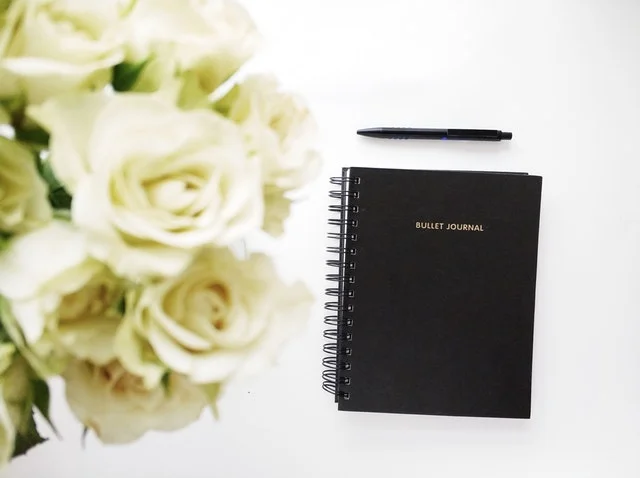What I've learned from three years of full-time freelancing
Somewhere between the COVID-19 pandemic, the economic downturn the pandemic has spurred, the movement for Black lives and my own personal issues, I looked up and it was August.
Around this time three years ago, I wrapped up a contract writing gig and started working for myself. On my first Monday morning as an independent writer, I remember walking to Lake Michigan, which made me feel small in comparison to its vastness. No longer weighed down by a sweaty commute by bus in a sea of skyscrapers and workers in downtown Chicago, I started to spend my mornings walking to the lake both to exercise before sitting in a poor quality chair all day and to listen to the waves of the water caress the concrete beneath the morning sun. These moments of brief peace eased the panic I felt as I—a Black woman from a low-income, single-parent household in Detroit—disconnected myself from a steady paycheck and perceived safety net therein and attempted to reach freedom, the freedom to tell the stories I wanted to tell, work with whichever client I wanted and potentially earn whatever I stood to earn at a regular job.
Looking back, I felt beat up after working several jobs that weren’t the right fit for me and in some cases left me drained. August 2017 was a scary yet exciting time to me.
Fast forward three years later, and I’m still here, writing for editorial and content marketing clients and somehow making it work. Here are a few lessons I’ve learned over the past few years on how I’ve stayed afloat:
Develop multiple anchor clients
Anchor clients (or retainer clients, recurring clients, etc.) have been my lifeline as a freelancer. I learned pretty quickly that pitching frequently wouldn’t work for me, because I needed clients to pay me soon enough to pay my bills. I hadn’t yet learned to negotiate pay upon submission nor was I commanding rates that could sustain me yet.
Over the course of three years, I’ve continued to cultivate multiple anchor clients that keep me financially afloat. The rule of thumb I’ve since come up with is having three to four anchor clients who pay well is about what I need to sustain myself. That way if I lose a client for some reason, my entire financial life and mental health won’t be upended with that loss.
I’ve thought about the beats I wanted to cover and contacted B2B and consumer clients across those coverage areas. From scouring Twitter to finding leads in the Writer’s Market or other databases of trade publications, finding and cultivating new anchor clients has kept me afloat before and during this crisis.
Building relationships is critical
When the COVID-19 pandemic hit, it re-enforced just how fragile our global economy was. My heart went out to the arts, culture and travel reporters who appeared to have been hit first. Though March and April were worrying for me, I didn’t take a financial hit until May and June when I lost one of my anchor clients due to the pandemic.
But then something happened. It’s hard to pinpoint how much of this stemmed from the racial uprisings and how much was actually genuine, but I received inquiries in July and August from editors at various publications looking for writers. After two difficult months, I’m now trying to sort out how much work I can take on or passing along work to writers in my network.
Some of this work has emerged due to leads I cultivated long before the pandemic, but others came about because of my previous reporting for various outlets. As I built up my portfolio and thus built up my network of contacts, I realized that my name was discussed in conversations beyond my purview. My name is now coming up as a journalist who could be assigned work. I have mixed feelings about that, but I’ve recognized the importance of this shadow network in bringing about higher-end opportunities to which I wouldn’t otherwise have access.
How have I built these relationships? I’ve been proactive in reaching out to clients with letters of introductions or specific pitches. I’ve filed on deadline and tried to turn in reasonable copy. I’ve checked in with my clients about the process of my reporting along the way. I’ve reached out to clients about contributing to upcoming issues in their editorial calendars. Whether editors are seeing me in their news feeds or their inboxes, staying top of mind has saved me from spiraling into further financial instability.
Plan for the worst and the best
This pandemic has taught me so much about the difference between surviving and thriving. Freelancing, as well as my fierce frugality and unique circumstances, has allowed me to save a baby emergency fund. I have a great deal of student loan debt, but I don’t have children, a spouse, generational wealth, a car or a home. I live in a small apartment in an expensive city. Growing up with less has stayed with me throughout my life and influenced my money mindset and behaviors. So by default, I’ve been saving and working as though there was an emergency lurking around the corner, but I never knew things would be this bad.
Beyond saving for emergencies, I had to consider what I wanted in life. I’ve never taken a real vacation, where I turn off my email and go to a place with the sole purpose of relaxing. I can’t say when I first noticed this, but I’ve begun recognizing tension and aches and pains in my body. Before the stress of the pandemic set in, I realized that I needed to save for vacations, retirement and other life goals. And the more time that went by, the more I understood how much charging the right rates and working with wonderful clients correlated with my ability to reach these goals.
With everything that’s going on, I’m glad to be working at all, let alone on my own terms given that many journalists who’ve either been laid off or have risked their lives on the front lives of this pandemic. As I navigate personal and societal issues while keeping my business afloat, I recognize how hard things are for freelancers right now. After riding through several tough times, including this pandemic, I can say for certain that this, too, shall pass.
What are your tips for sustaining a freelance career? Tell me in the comments or email me at contact@thefreelancebeat.com.




